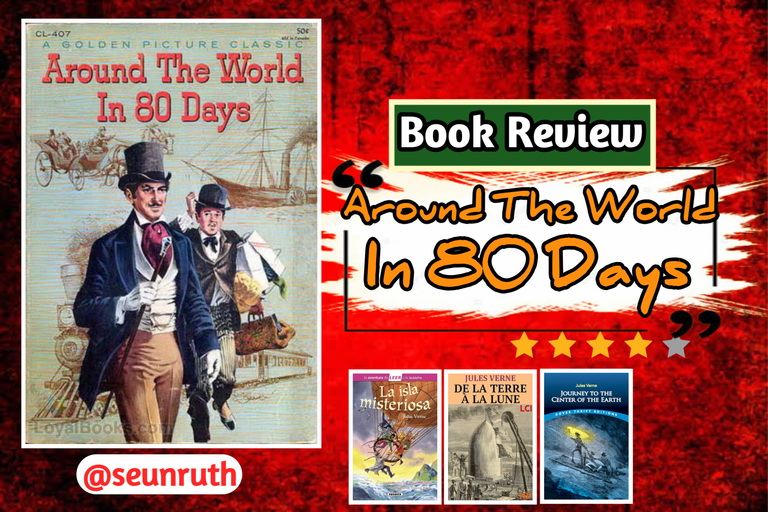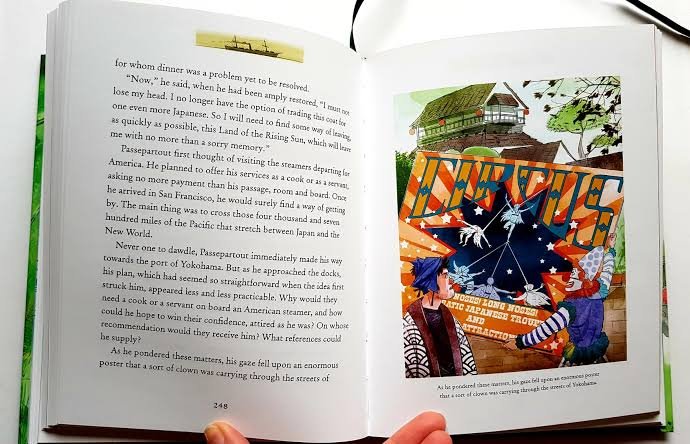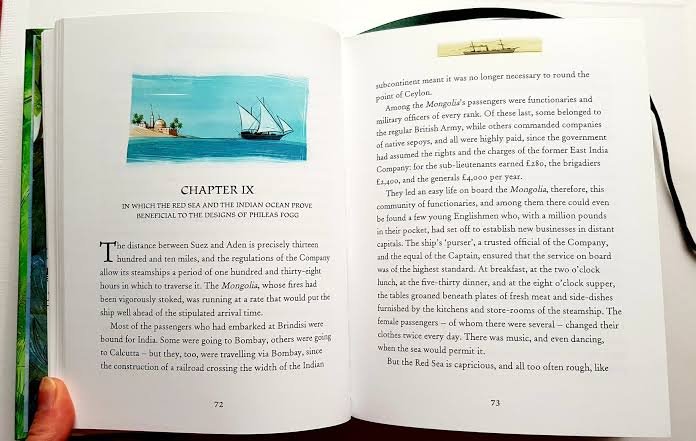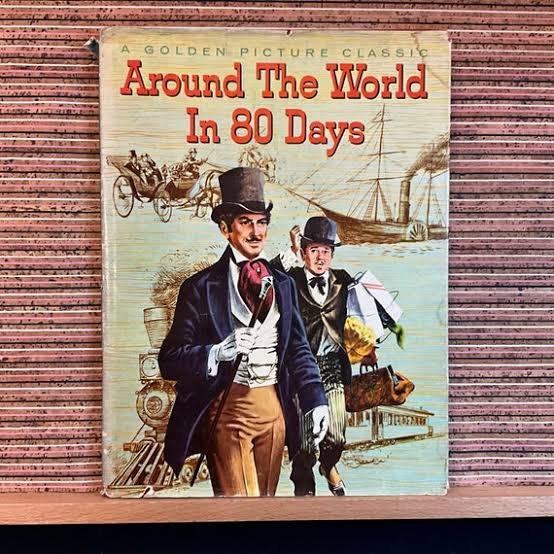Book Review: Around the World in Eighty Days" by Jules Verne

I just finished reading Jules Verne’s Around the World in Eighty Days—and man, it’s a whole lot of experience.”
What struck me first wasn’t even the wild concept of racing against time, it was Phileas Fogg himself. This man is so precise, so rigid in his routines, almost robotic in how he moves through life. At first, I thought: how could such a cold, meticulous character carry a story filled with chaos and unexpected turns? But that’s exactly the magic. Watching him thrown into situations he can’t control felt like watching someone who’s built an iron wall around himself suddenly realize the world doesn’t care about his clock. That clash is where the tension and honestly, the humor lives.

And Passepartout, his servant. I adored this man. He is the pulse of the machine-like life of Fogg. Fogg is composed and calculating, Passepartout impulsive, emotional, even clumsy. Their interaction was addicting, it was like friendships that two people with totally different personalities complement each other. It was impossible not to laugh at the mistakes Passepartout made, yet, he added some softness to the story which made me be even more concerned about the trip of Fogg.
What really did it to me, however, were the small gut-punches. Similar to the scene in India of Aouda, the woman they save. It is this instant evocation of humanity in Fogg-he does not express emotion at all very often, but you feel that change, that softening. It is non-aggressive, yet strong. It was about then that the book ceased to be only about a bet or a ticking clock to me. It turned into the question of what happens when one leaves his or her rigid world and allows other people to enter.
And the pace, it is madness how Verne keeps you on the edge. Trains, ships, elephants, delays, storms--every time you think Fogg has it in hand something comes crashing in and you are holding your breath once again. At times, when I was reading the book, I had to stop and just say, okay how are they going to get out of this one? It brought me back to one of the real life journeys of mine, the ones that were not planned by the book, when flights are missed, there are unexpected detours to be taken, unexpected kindness of strangers. Verne portrays that excitement and pressure so well that even being in my room I could feel like I was racing with them.

Towards the end when that turn of events occurs, the understanding of the wasted day, I was frozen in place staring at the page. It was not only witty, it was gratifying in such a profound way, as though all the strain were being released in relief at once. And the thing that remained with me the most perhaps was not the show of the trip in itself, but the faint sound of realization that Fogg, who began as this untouchable, inflexible man, had changed. He was cracked open by the world in its way.
Reading this book was not an escape into a fantasy but was more like being in a train yourself, watching the landscapes going out the window, feeling the push and pull of time and finding out that sometimes it is not the journey to outrun the clock but who you are with and what they do to you during the process.
I still wonder how a story written in 1872 can still make your heart beat a little faster in 2025.

The last three images was gotten from web:
Image 1
Image 2
Image 3

View or trade
LOHtokens.@seunruth, You have received 1.0000 LOH for posting to Ladies of Hive.
We believe that you should be rewarded for the time and effort spent in creating articles. The goal is to encourage token holders to accumulate and hodl LOH tokens over a long period of time.
Thanks LOH 🌹
Sending you Ecency curation votes.😉

Such a great review! I felt the same, Fogg’s transformation is what makes the book so special. It’s an amazing feeling how a story from 1872 still makes your heart pound fast.